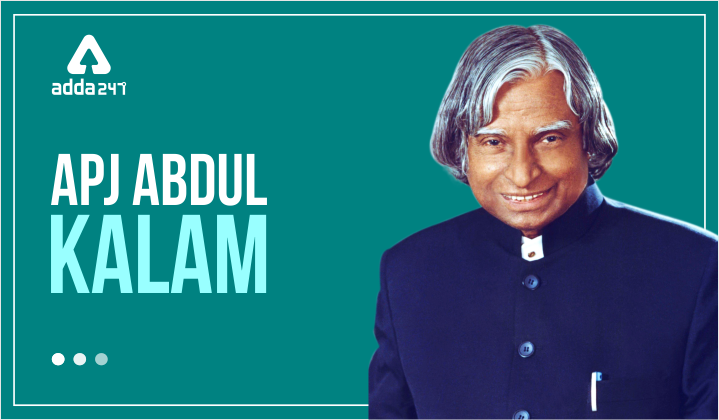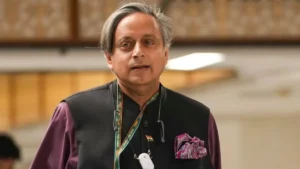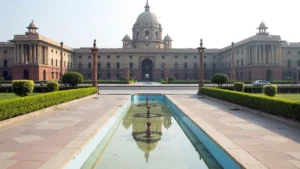“Failure will never overtake me if my determination to succeed is strong enough.”
-APJ Abdul Kalam
Birth Anniversary of APJ Abdul Kalam
On the birth anniversary of Dr. APJ Abdul Kalam, observed on 15th October, we honor the remarkable life of India’s beloved former President and eminent scientist. His dedication to education and innovation serves as a timeless source of inspiration for all, promoting the ideals of knowledge, humility and service.
Who was APJ Abdul Kalam?
Dr. A.P.J. Abdul Kalam, affectionately known as the “Missile Man of India,” was a prominent Indian scientist and politician. Born on October 15, 1931, in Rameswaram, India, he dedicated his remarkable career to advancing India’s missile technology and nuclear weapons programs. Dr. Kalam’s significant contributions played a pivotal role in shaping the nation’s development. He also had the honor of serving as India’s President from 2002 to 2007. His legacy is marked by his exceptional work in science, technology and leadership, which continue to inspire and benefit the country to this day. In this article, we will delve into the life of Dr. A.P.J. Abdul Kalam.
Life of APJ Abdul Kalam:
After graduating from Madras Institute of Technology with a degree in aeronautical engineering, Kalam joined the Defence Research and Development Organisation (DRDO) in 1958. He joined the Indian Space Research Organisation in 1969 as project director of the SLV-III, the country’s first satellite launch vehicle. When he returned to the DRDO in 1982, he oversaw a programme that resulted in a number of successful missiles, earning him the moniker Missile Man.
From 1992 to 1997, Kalam was the defence minister’s scientific adviser, and from 1999 to 2001, he was the government’s principal scientific adviser with the title of cabinet minister. Although the tests raised worldwide alarm, Kalam’s important role in the country’s 1998 nuclear weapons testing cemented India’s status as a nuclear power and elevated him as a national hero. In 1998, Kalam proposed Technology Vision 2020, a statewide strategy that he described as a road map for converting India from a developing to a developed society in 20 years. Increasing agricultural productivity, prioritising technology as an engine for economic growth, and expanding access to health care and education were among the goals outlined in the plan.
Kalam was nominated by India’s ruling National Democratic Alliance (NDA) to succeed outgoing President Kocheril Raman Narayanan in 2002. Despite being Muslim, Kalam was nominated by the Hindu nationalist (Hindutva) NDA, and his status and popularity were such that the Indian National Congress, the main opposition party, also proposed his candidacy. Kalam easily won the election, and in July 2002, he was sworn in as India’s 11th president, a purely ceremonial position. He was succeeded by Pratibha Patil, the country’s first female president, when his term expired in 2007.
Post President Life of APJ:
Following his return to civilian life, Kalam remained committed to utilising science and technology to help India become a developed country, lecturing at a number of universities. He fell while delivering a lecture at the Indian Institute of Management Shillong on July 27, 2015, and was pronounced dead shortly after from cardiac arrest. Kalam wrote several books, including Wings of Fire, an autobiography (1999). Two of the country’s highest honours, the Padma Vibhushan (1990) and the Bharat Ratna (2001), were among his many accolades (1997).
Awards Presented to A.P.J Abdul Kalam
Here is the list of awards and honors presented to missile man of India, A.P.J. Abdul Kalam:
| Year | Awards |
| 1981 | Padma Bhushan |
| 1990 | Padma Vibhushan |
| 1994 | Distinguished Fellow |
| 1995 | Honorary Fellow |
| 1997 | Bharat Ratna |
| 1997 | Indira Gandhi Award for National Integration |
| 1998 | Veer Savarkar Award |
| 2000 | Ramanjun Award |
| 2007 | Honorary Doctorate of Science |
| 2007 | King Charles II Medal |
| 2007 | Honorary Doctorate of Science and Technology |
| 2008 | Doctor of Science |
| 2008 | Doctor of Engineering |
| 2008 | Hoover Medal |
| 2008 | Doctor of Science |
| 2009 | International Von Karman Wings Award |
| 2010 | Doctor of Engineering |
| 2011 | IEEE Honorary Membership |
| 2012 | Doctor of Laws |
| 2013 | Von Braun Award |
| 2014 | Doctor of Science |
| 2014 | Honorary Professor |
Famous Quotes by APJ:
- Look at the sky. We are not alone. The whole universe is friendly to us and conspires only to give the best to those who dream and work.
- We should not give up and we should not allow the problem to defeat us.
- If four things are followed – having a great aim, acquiring knowledge, hard work, and perseverance – then anything can be achieved.
- Teaching is a very noble profession that shapes the character, caliber, and future of an individual. If the people remember me as a good teacher, that will be the biggest honour for me.
- Where there is righteousness in the heart, there is beauty in the character. When there is beauty in the character, there is harmony in the home. When there is harmony in the home, there is order in the nation. When there is order in the nation, there is peace in the world.
- Unless India stands up to the world, no one will respect us. In this world, fear has no place. Only strength respects strength.
- The purpose of education is to make good human beings with skill and expertise… Enlightened human beings can be created by teachers.
- Let me define a leader. He must have vision and passion and not be afraid of any problem. Instead, he should know how to defeat it. Most importantly, he must work with integrity.
-
Climbing to the top demands strength, whether it is to the top of Mount Everest or to the top of your career.
-
My message, especially to young people is to have courage to think differently, courage to invent, to travel the unexplored path, courage to discover the impossible and to conquer the problems and succeed. These are great qualities that they must work towards. This is my message to the young people.
Find More General Studies News Here




 Which is the Largest Banana Producing St...
Which is the Largest Banana Producing St...
 Shashi Tharoor Conferred Honorary D.Litt...
Shashi Tharoor Conferred Honorary D.Litt...
 Big Change at Rashtrapati Bhavan! Lutyen...
Big Change at Rashtrapati Bhavan! Lutyen...








